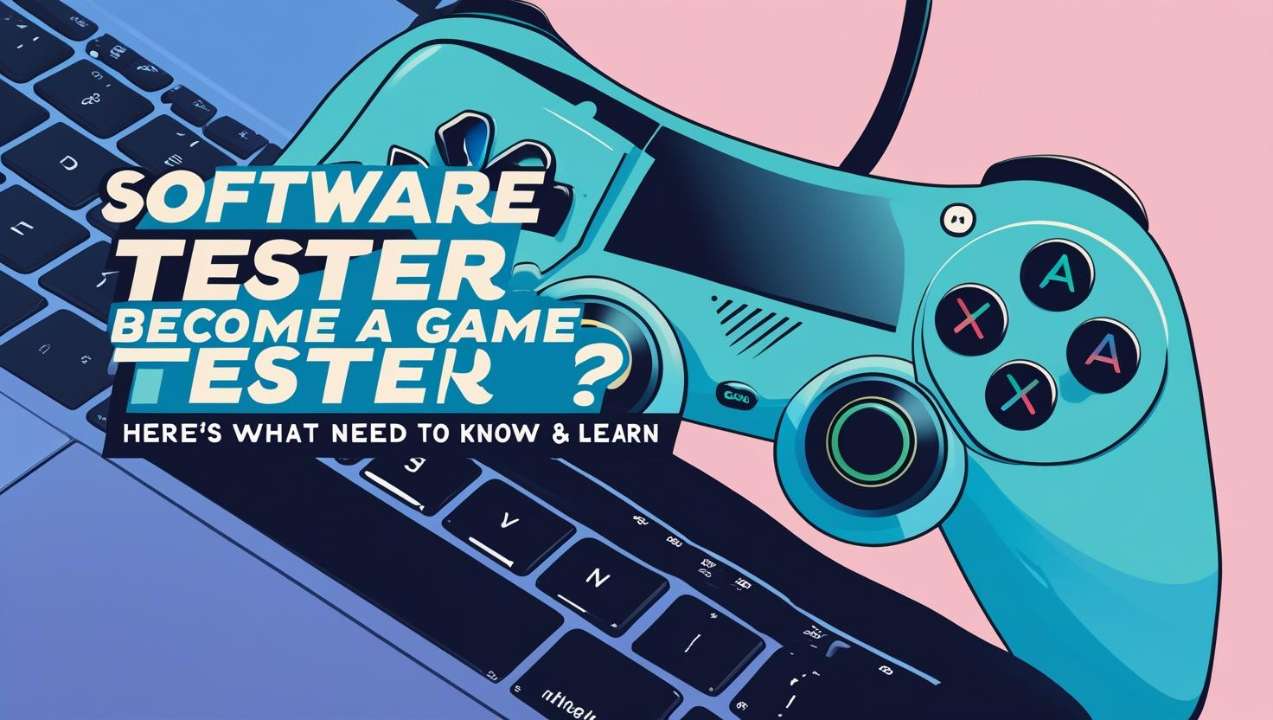 GAME TESTING
GAME TESTING Can a Software Tester Become a Game Tester? Here's What You Need to Know & Learn

As the gaming industry continues to grow, fueled by innovations in virtual reality, augmented reality, and mobile gaming, game testing has become an increasingly sought-after field. For software testers who might be interested in exploring game testing, this path can be both exciting and challenging. But what exactly does it take for a software tester to become a game tester, and what should you learn along the way?
Let’s dive into the key steps and skills needed to transition from software testing to game testing!
1. Understanding the Differences: Software Testing vs. Game Testing
While both software and game testing share foundational testing principles, they differ significantly in application and focus:
- User Experience is King in Games: Unlike most software applications, games rely heavily on user experience (UX) and engagement. Game testers need to evaluate how immersive, enjoyable, and seamless the game is for players.
- Unpredictable Scenarios: Games often present complex and dynamic environments where player choices drive different outcomes. Testers need to prepare for unexpected scenarios and edge cases that wouldn’t occur in standard software testing.
- Technical and Non-Technical Skills: Game testers require a combination of traditional testing skills (like identifying bugs and tracking issues) and some unique qualities, such as an understanding of game mechanics, a keen eye for design inconsistencies, and even a basic understanding of game engines.
2. Skills You Need to Transition into Game Testing
If you're already a software tester, you likely have a solid foundation. Here’s what to focus on next:
- Familiarity with Game Engines: Popular game engines like Unity, Unreal Engine, and CryEngine power a vast majority of games. Familiarizing yourself with these platforms, or even creating small demo projects, can provide insights into how games are structured and give you an edge in game testing.
- Understanding of Gameplay Mechanics & Design: While software testers focus on function and user interaction, game testers need to assess gameplay balance, design consistency, and storytelling. Familiarity with core game mechanics (e.g., rules, objectives, feedback loops) helps in evaluating whether a game is both enjoyable and functional.
- In-Depth Knowledge of Testing Methods:
- Functional Testing: Verify game mechanics, objectives, and functionality.
- Compliance Testing: Ensure the game meets console or app store requirements.
- Performance Testing: Assess frame rates, latency, and load times under various conditions.
- Compatibility Testing: Verify performance across different devices, screen sizes, and platforms.
- Playtesting & UX Testing: Determine if the game is engaging, intuitive, and provides a good user experience.
- Bug Reporting and Documentation: Many companies use bug-tracking tools like JIRA, Bugzilla, or Mantis for software testing, and these are also widely used in game testing. Precision and clarity in reporting are essential, as game development teams rely heavily on detailed feedback to make iterative improvements.
3. Tools & Technologies to Learn
To become effective in game testing, a few key tools can boost your skillset:
- Game Debugging Tools: Tools like RenderDoc (for graphics debugging) and Intel GPA help monitor performance and identify rendering issues.
- Automation Tools for Game Testing: While game testing has traditionally been more manual, automation is gaining ground, especially for tasks like regression testing. Tools like Appium, TestComplete, or even Selenium (with customizations) can be useful, though automation in games can be more challenging due to variability.
- Virtual Reality (VR) and Augmented Reality (AR) Testing Tools: If you're interested in VR/AR games, familiarity with tools specific to these platforms, such as Oculus Debug Tool or ARKit/ARCore testing kits, can be advantageous.
4. Core Competencies Needed for Game Testers
In addition to technical skills, successful game testers often possess:
- Attention to Detail: Games are intricate, and small issues can impact gameplay or immersion significantly. High attention to detail is critical.
- Patience and Persistence: Testing can be repetitive, especially when verifying fixes or reproducing bugs. Being thorough and patient is crucial to ensure quality.
- Passion for Gaming: A genuine interest in games helps you relate to the end user, making your testing more effective and insightful.
- Communication Skills: You’ll often work closely with developers, designers, and other QA team members. Being able to communicate issues clearly and constructively is key.
5. Building a Portfolio for Game Testing
If you're new to game testing, consider creating a portfolio:
- Game Mods or Small Indie Projects: Participate in game modding communities or work on small indie game projects to gain hands-on experience. These projects can showcase your practical testing skills.
- Document Test Cases and Reports: Maintain a record of test cases and detailed bug reports from your practice projects to showcase your approach to testing and problem-solving.
6. Find Entry Points: Gaining Game Testing Experience
- Freelance or Contract-Based Roles: Many game studios, especially indie companies, hire freelance or contract testers for short-term projects. This can be a great way to gain experience and build a network.
- Game Testing Internships: Some studios offer game testing internships, which provide hands-on experience and often lead to full-time roles.
- Networking in the Gaming Community: Joining gaming forums, attending industry events, or being active on LinkedIn can help you learn from experienced game testers and stay updated with trends and opportunities.
Final Thoughts
Yes, a software tester can absolutely become a game tester. The key lies in understanding the unique aspects of games, from gameplay mechanics to user experience, and building skills that complement traditional software testing knowledge. With persistence and a passion for gaming, transitioning into game testing can open up a dynamic career path filled with creativity and technical challenge.
Are you ready to start your journey into game testing? Take it one step at a time, learn the necessary skills, and immerse yourself in the gaming world. 🎮
